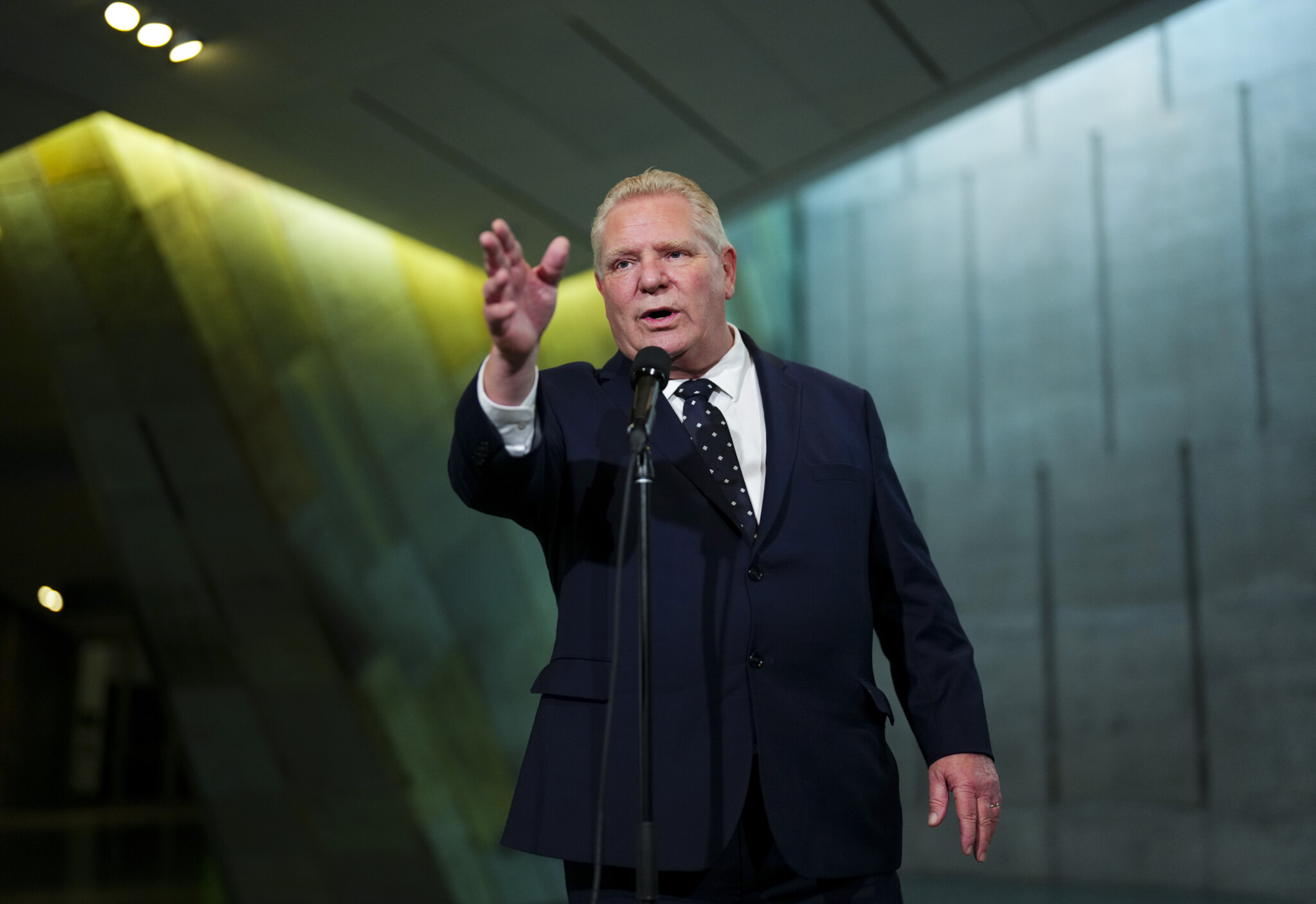Ontario Premier Doug Ford has been making headlines. In the same day that he engaged in a heated war of words with his federal conservative counterparts, he gave a public “rant” (his words) in which he mused that Ontario ought to start electing judges. There is a certain irony here. Had Ford been more helpful to Pierre Poilievre during the federal election, Ford could have received much-needed assistance in addressing criminal justice issues plaguing Ontario’s cities.
The tension between the Ford and Poilievre camps has become front-page news since last week’s election. The conflict escalated when Conservative MP Jamil Jivani called out Ford for being a “problem” for Canada and Ontario. Jivani’s message implied that the Ford PCs were not conservative but ideologically “hollow,” uninterested in providing solutions to what ails Ontario. Jivani’s framing echoes Rudyard Griffiths’ recent comments on a podcast where he referred to Ford’s version of conservatism as one focused on “bread and circuses” rather than delivering small c-conservative reforms to improve health care, education, and economic development.
While many have been critical of Ford’s conservative bona fides, there is one area of his policy legacy that has been quite conservative, or at least heterodox: the Charter and the courts. The Ontario legislature has twice invoked the Charter’s notwithstanding clause under Ford’s leadership. The first instance sought to insulate his government’s preferred changes to third-party advertising in election campaigns (the Supreme Court of Canada still managed to invalidate Ford’s reforms despite the law being shielded from Charter challenge). The second time, Ford sought to end an education worker strike in November 2022 (which he subsequently repealed and retroactively nullified as part of labour negotiations).
Ford also came close to using section 33 to reduce the size of the Toronto City Council in 2018. Strangely, Poilievre received far more critical press for proposing to use the Charter’s notwithstanding clause to ensure mass murderers receive consecutive prison sentences than any of Ford’s actual uses of the clause.
Ford’s approach to the courts has been similarly heterodox. The premier was criticized by the legal community for adding former political staffers to the government committee that helps select Ontario judges and justices of the peace, and enhanced the role of the attorney general in the selection process. Ford, who has also been critical of the federal government’s bail legislation, defended his reforms to judicial selection processes by stressing he wanted “tough” and “like-minded” individuals in those positions to help address the rise of auto thefts and violent crime within the province.
Ford’s comments that he would refuse to appoint “some NDP or some Liberal” to serve on the committee led members of the legal community to claim his government was “politicizing” the courts in a way associated with American politics.
There are at least two ironies here. First, Ford’s recent comments on judicial elections have undermined his entirely justified desire to have members of judicial appointment committees reflect his government’s values on criminal justice. I previously wrote in The Hub that the media and legal community’s reaction to Ford’s judicial appointment tweaks fit a pattern whereby conservative politicians are treated with more suspicion when they engage in judicial reforms. Now, in endorsing the election of judges, Ford has given ammunition to his critics who say conservatives should not be trusted on the Charter file. The label of Americanization and politicizing the courts often comes off as hyperbolic. In this instance, it is difficult to refute.
The second irony relates to the state of conservatism and judicial politics in Canada. In Ford’s “rant,” he lashed out at the judge who granted an injunction on Charter grounds to block the province’s removal of several bike lanes in Toronto. Given that the federal government appoints all provincial superior court judges, one way to get “better” judges inclined to provide stronger sentences for violent crime—and, for that matter, to change the laws around bail—would be to elect a Conservative federal government.
When it comes to criminal justice reform, Ford’s actions over the last several weeks speak louder than his words.









